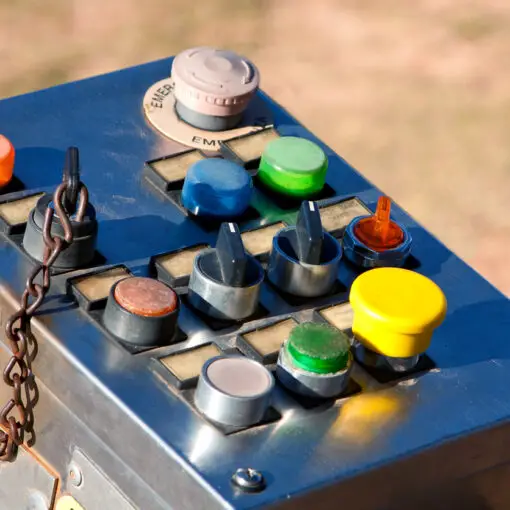Ham radio, or amateur radio, is a popular hobby and service that allows enthusiasts to communicate with others around the world using a variety of frequencies. Joining a ham radio organization can provide countless benefits, including educational resources, networking opportunities, and access to equipment and expertise. With numerous clubs and organizations available, both nationally and locally, it can be challenging to determine which ones are the best fit for your interests and needs.
Some of the top ham radio organizations in the United States include the Amateur Radio Relay League (ARRL), which boasts over 2,000 associated clubs across the country. The ARRL offers a wealth of information and support for hobbyists of all levels. Other notable organizations include regional and local clubs, such as the Utah Valley Amateur Radio Club, which cater to specific geographic areas and may provide a more intimate, community-oriented experience. Additionally, many clubs hold regular meetings, workshops, and events, making them valuable resources for both new and experienced ham radio operators.
Section 2: National and International Organizations
ARRL – The American Radio Relay League
The ARRL is a prominent national organization for radio amateurs in the United States. It offers various resources and services, including operating events, educational materials, and advocacy for ham radio enthusiasts. Members also receive the monthly publication, ‘QST’, covering a wide range of ham radio topics.
ARRL supports several initiatives such as the International DX Contest, enabling communication between hams worldwide, and facilitating schools’ contact with astronauts via amateur radio.
IARU – International Amateur Radio Union
On a global level, we have the International Amateur Radio Union (IARU), a worldwide organization that includes national amateur radio groups such as the ARRL. The IARU aims to coordinate and represent their member societies, defending and extending amateur radio worldwide.
The IARU also facilitates sharing technical expertise among members and organizes international events to bring the global ham radio community together.
RSGB – Radio Society of Great Britain
For radio amateurs in the United Kingdom, the Radio Society of Great Britain (RSGB) provides similar services to its international counterparts. RSGB offers a platform for members to connect, exchange technical knowledge, and participate in various radio events. Additionally, it advocates for ham radio interests in the UK.
RSGB members benefit from the monthly ‘RadCom’ publication, which covers technical articles, news, and event information relevant to the UK’s amateur radio community.
Local and Regional Clubs
Finding a Local Club
Many local and regional ham radio clubs have in-person meetings and attract membership from a specific area. To find a radio club near you, the Radio Society of Great Britain’s Club Finder is a helpful tool. Simply enter your town or postcode and select the traveling distance and press the arrow keys to navigate.
Benefits of Joining a Regional Club
Joining a regional ham radio club offers numerous benefits for amateur radio enthusiasts. Some highlights include:
- Networking with fellow ham radio operators in your area, allowing for the exchange of ideas and experiences.
- Access to club resources, such as equipment, workshops, and training sessions, can help improve your skills and knowledge.
- Participating in club activities, like field trips, emergency communications exercises, contesting, and special events, can enhance your enjoyment of the hobby.
- Supporting local community events and emergency communication efforts through volunteer activities as a club member.
Overall, joining a local or regional ham radio club can significantly enrich your amateur radio experience and contribute to your growth as an operator.
Section 4: Special Interest Groups
Within the ham radio community, there are a variety of special interest groups catering to different needs and aspects of the hobby. In this section, we will discuss three popular sub-categories: DX and Contest Clubs, Emergency Communications Organizations, and Digital Communications Groups.
DX and Contest Clubs
DX and Contest Clubs focus on reaching distant stations (DX) and participating in various radio contests. These clubs provide a platform for enthusiasts to exchange tips, techniques, and collaborate on projects. They often organize events and gatherings to foster camaraderie and facilitate learning among members. Some popular DX and Contest Clubs include:
Emergency Communications Organizations
Emergency Communications Organizations play a critical role in times of crisis or natural disasters by providing essential communication support to local communities, relief agencies, and public safety organizations. Ham radio operators within these groups often undergo training, drills, and simulations to ensure they are prepared for real emergencies. Some examples of Emergency Communications Organizations are:
- Amateur Radio Emergency Service (ARES)
- Radio Amateur Civil Emergency Service (RACES)
- US AuxComm Groups
Digital Communications Groups
Digital Communications Groups, as the name suggests, are dedicated to the exploration and development of digital modes in ham radio, such as FT8, D-STAR, and APRS. These clubs provide a forum for members to discuss advancements in digital technology, share code and software, and collaborate on projects. Some well-known Digital Communications Groups include:
Benefits of Joining a Ham Radio Organization
As a ham radio enthusiast, joining a ham radio organization can provide numerous benefits to help you grow your skills, knowledge, and connections. Here are some of the advantages:
Networking and Mentorship Opportunities
One of the main benefits of joining a ham radio organization is the opportunity to network with fellow enthusiasts who share your passion. You can interact with others who have a wealth of experience and knowledge, allowing you to learn from them and develop your own skills. These connections can also lead to valuable mentorship opportunities, helping you progress both as a hobbyist and, potentially, a professional.
Learning Resources and Training
Organizations like the American Radio Relay League (ARRL) provide access to learning resources and training that are often not available elsewhere. As a member, you can benefit from workshops, classes, and materials that cover various aspects of ham radio operation and technology. This continuous education allows you to stay up-to-date with the latest advancements and techniques, making you a more competent and knowledgeable operator.
Access to Equipment and Facilities
Many ham radio organizations have access to state-of-the-art facilities and equipment that are not typically available to individual hobbyists. By joining a club, you can use this equipment to experiment, learn, and hone your skills. In addition, access to these facilities can help you discover new aspects of the hobby, such as satellite communication or digital modes, further expanding your horizons.
Ultimately, joining a ham radio organization enables you to grow as a hobbyist, connect with like-minded individuals, and gain access to resources that can significantly enhance your experience.
How to Choose the Right Organization for You
When looking for the best ham radio organization to join, it’s essential to consider your interests, locality, and goals. There are various groups available, each with a specific focus and purpose, and finding the right fit for you is key to maximizing your amateur radio experience.
First, consider any specific areas of interest or specialties within ham radio, such as emergency communications, contesting or DXing. Some organizations concentrate on certain aspects of the hobby, such as the emergency communication-oriented groups, while others may take a more general approach.
Next, consider the location of the organization. It is often beneficial to join a local group to participate in meetings, events, and projects more easily. You can find local clubs by searching for them on websites like the ARRL’s list of affiliated clubs or finding meetup groups through platforms like Meetup.com.
Lastly, consider the organization’s reputation and community involvement. It can be helpful to research online forums, social media, and local resources for feedback on the selected club. Joining a club with an established reputation and active members can enhance your learning experience and provide more networking opportunities.
By taking into account your interests, location, and the organization’s reputation, you can make an informed decision when choosing the best ham radio organization for you.
Conclusion
By joining reputable ham radio organizations, amateur enthusiasts can gain valuable knowledge, experience, and build connections with like-minded individuals. Some of the top organizations in the field include the American Radio Relay League (ARRL) and the International Amateur Radio Union (IARU) – Region 2. These groups offer resources, training, and support to advance both personal and collective interests within the amateur radio community.
The Radio Amateur Civil Emergency Service (RACES) is another excellent option, as it focuses on supplementing emergency communication efforts during disasters. Participation in RACES allows ham radio operators to contribute valuable skills to their communities in times of crisis.
In addition to these major organizations, there are various local and regional clubs that cater to amateur radio enthusiasts. One such example is the annual “Field Day” contest in St. George, as mentioned in the St. George Utah news article. These events and clubs present opportunities for hams to connect, share knowledge, and compete in a friendly environment.
Ultimately, becoming a member of one or more ham radio organizations can offer many benefits, from learning new skills to engaging in meaningful service. With a wide variety of groups to choose from, there is likely an organization that will align with any amateur radio enthusiast’s interests and goals.





